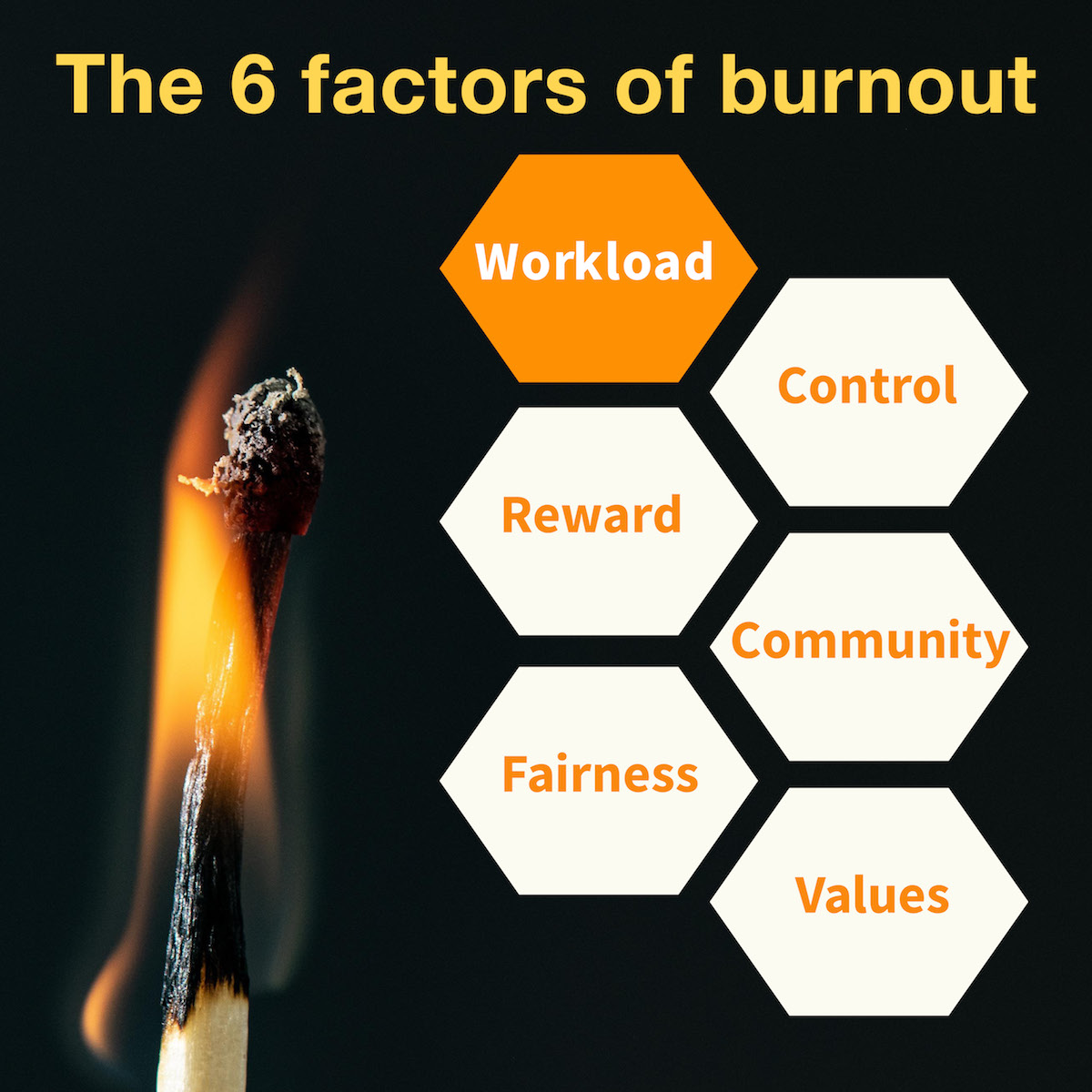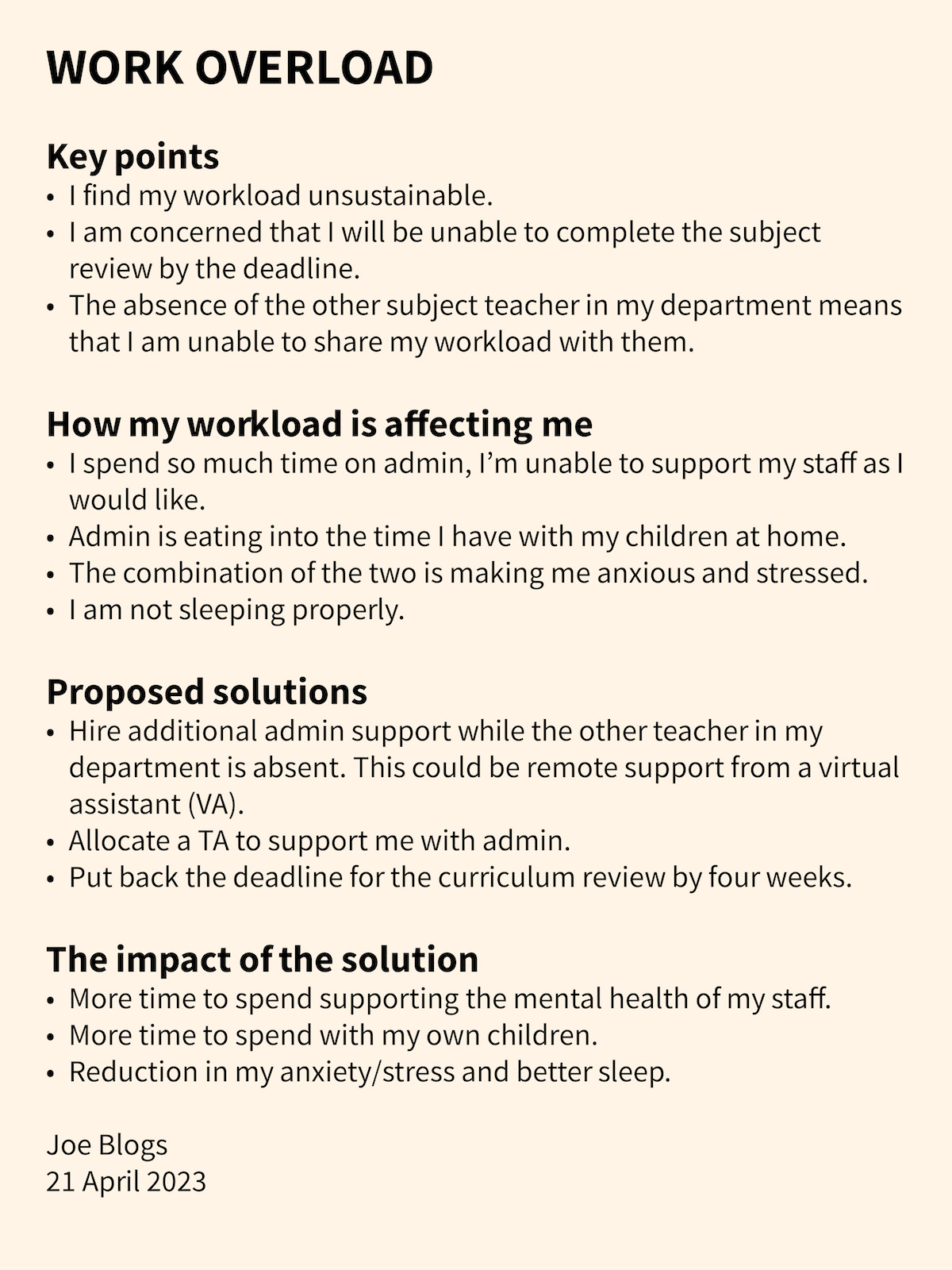News & Views

Work overload: How to ask for help
The recent teachers’ strikes have been about much more than pay. Work overload, leading to mental ill-health and burnout, is causing an unprecedented retention and recruitment crisis. Over a third of early career teachers (ECTs) leave within five years, most by the end of their first year.
Burnout is commonly characterised by physical and emotional exhaustion. It's caused by long-term stress at work or working in a physically or emotionally draining role. Christina Maslach (2005), a world authority on workplace burnout, identifies work overload as one of six factors contributing to burnout.

Take action
Does this resonate? Are you concerned about how work overload affects your mental health or your work-life and personal/family life?
There are two approaches you can take:
- A whole-school approach
- An individual approach.
While a whole-school approach to workload issues is always more effective, this is not always possible. You might need to take individual action. So, how do you go about it?
The one-page meeting
Talking to your line manager or headteacher about your workload is essential. Requesting a meeting and having a conversation is not always successful. You might find it difficult because:
- It triggers emotions connected to your mental health.
- There is a power imbalance between yourself and your line manager.
- You might forget some of the issues you intended to share.
The one-page meeting overcomes these problems. It is a structured, written approach that enables you to focus on the factors you wish to discuss. It also sets out how the issue you want to raise is affecting you and proposes solutions. It is a sheet of A4 with a title, organised into subheadings and bullet points. The ideal number of bullet points underneath each subheading is three and no more than four. It is also important that you keep to one page – this makes your points stand out and the document easy to read quickly.
The subheadings are:
- Key points
- How [subject of meeting] is affecting me
- Proposed solution
- The impact of the solution.
Here is an example of a one-page meeting document, focusing on work overload. The teacher is in charge of a subject and they have requested a meeting with the headteacher.

How to use the one-page meeting document
- Write the one-page meeting document.
- Request a meeting via email to discuss your workload. Attach a copy of the one-page meeting document. Here is a suggested email:
Dear [name of person you wish to meet]
I would be grateful if I could meet with you to discuss concerns I have about my workload/work overload.
I have set out my concerns and proposed solutions in the attached document.
Thank you.
- When you attend the meeting, take two copies of the one-page meeting document with you. If the person you are meeting hasn’t brought their document, provide them with one of your copies.
- Ask if it would be helpful for you to make a summary of your meeting. If this is declined, ensure that you make notes on your copy of the one-page meeting document for your records.
- Expand on the points you raise in your one-page meeting document.
- If the person you are meeting digresses, gently bring them back to the bullet point you wish to discuss.
- Thank the person for their time in meeting with you.
Whatever the outcome, you will have a record of the meeting, either in the summary you make for both of you or in your handwritten notes. You can always refer to this in the future, should you need to discuss your workload again. Make sure you read through your notes as soon as possible after the meeting to ensure the account is accurate and detailed.
Want to know more about how to support and improve staff physical, emotional and mental health? Check out our Staff Wellbeing Award.
About the author

Steve Waters is a wellbeing and mental health consultant and founder/CEO of the Teach Well Toolkit. He is also the author of the Staff Wellbeing Award and Cultures of Staff Wellbeing and Mental Health in Schools (2021).